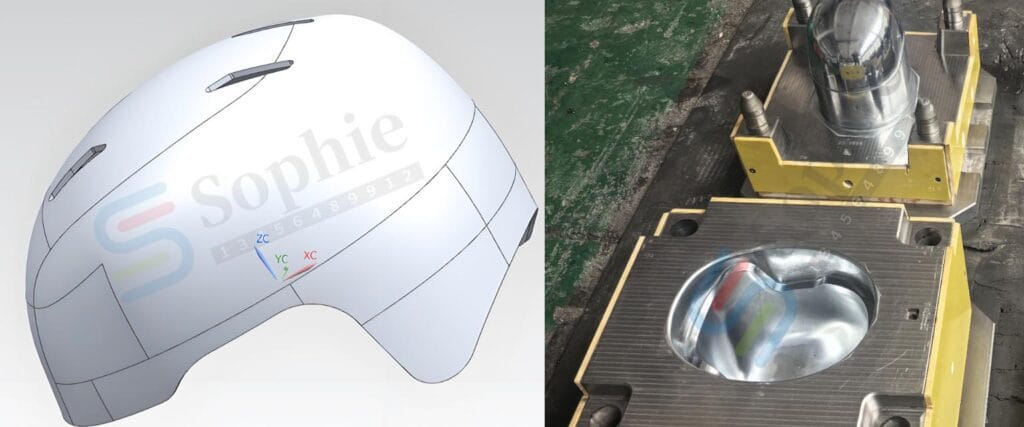WS MOLD guide you know the Spring Festival
As the fresh breeze of early April sweeps across China, our company will observe the Qingming Festival (清明节/Tomb-Sweeping Day) from ARP.4TH to 6TH. This 3-day holiday allows us to celebrate one of China’s most meaningful traditional festivals—a time for honoring ancestors, cherishing family bonds, and welcoming the vitality of spring.
Table of Contents
ToggleOrigins Of Qingming Festival Steeped in History
Dating back over 2,500 years, Qingming originated from the ancient Cold Food Festival (寒食节), a memorial day for Jie Zitui, a loyal nobleman of the Spring and Autumn Period. In 732 AD, Emperor Xuanzang of Tang Dynasty officially recognized Qingming as a day for ancestral worship.
The festival’s name translates to “Clear and Bright” (清明), reflecting its connection to spring’s renewal. It was added to UNESCO’s Intangible Cultural Heritage List in 2016, underscoring its global cultural significance.
The name of “Qingming Festival” comes from the Qingming solar term in the 24 solar terms of the Chinese lunar calendar. The “Almanac” says: “Fifteen days after the spring equinox, the Big Dipper points to Ding, which is Qingming. At this time, all things are clean and clear. It is named because the weather is clear and the scenery is bright, and all things are visible. “According to the “Hundred Questions on Sui Shi”, “All things grow at this time, and they are clean and bright. Therefore, it is called Qingming.”
Cultural Traditions: Blending Reverence and Joy
Tomb Sweeping (扫墓, Sǎomù)
Families visit ancestral gravesites to clean tombstones, offer food/wine, and burn joss paper (symbolic money for the afterlife). Many also place fresh willow branches—a symbol of resilience—on tombs.
Spring Outings (踏青, Tàqīng)
Qingming coincides with nature’s rebirth. People hike, fly kites (often with lanterns attached for evening beauty), and picnic amid blooming flowers.
Food Customs
Qingtuan (青团): Green dumplings made from glutinous rice and mugwort, stuffed with sweet red bean or savory pork.
Cold Dishes: A nod to the historic Cold Food Festival tradition.
Why do we sweep tombs on Qingming Festival?
In ancient China, Qingming Festival had nothing to do with tomb sacrifices. Tomb sacrifices were an activity for the nobility. Ordinary people did not hold tomb sacrifices, but only held family sacrifices. Probably starting from the Tang Dynasty, Qingming Festival and Cold Food Festival gradually merged, and tomb sweeping on Qingming Festival became a tradition that has been passed down to this day.

Modern Celebrations: Family, Nature, and Reflection
Today, Qingming balances solemn remembrance with joyful spring activities. Urban Chinese may combine tomb visits with countryside trips, while younger generations use digital tools like “virtual tomb-sweeping” apps to pay respects remotely. Environmental concerns have also popularized eco-friendly offerings like flowers over paper burning.
Does it really rain heavily during the Qingming Festival?
At this time, the average daily temperature in most parts of China has exceeded 12℃, and it almost no longer snows in the Yellow River Basin and the areas south of it. The temperature in the north rises quickly, with little precipitation, dryness and windiness. It is a period of the year with many sandstorms, and it rarely rains heavily. In the south, cold and warm air meet, precipitation increases significantly, and the air becomes humid, so “raining heavily” is more in line with the climate characteristics of the south.
Astronomical phenomenon at Qingming Festival
On the Qingming Festival, the sun’s direct point is at N5°55′, and the Northern Hemisphere has entered a period of long days and short nights. Starting from 6° north latitude, the day is one hour longer than the night for every 7.5 degrees of latitude (7°30′) to the north, and the daylight decreases gradually toward the south.
What is the significance of Qingming Festival?
Qingming Festival can satisfy people’s emotional needs to remember their ancestors and strengthen family ties; by worshipping their ancestors, they can trace their roots, learn from historical lessons, and better educate their descendants. Tracing their roots and worshipping their ancestors, remembering the martyrs, can also unite Chinese people at home and abroad, turn their hearts to the motherland, and enhance the cohesion of the Chinese nation.
Why It Matters for Our Global Community
At WS MOLD, we value cultural exchange. Understanding Qingming offers insights into:
Chinese family values (filial piety, intergenerational connection)
Harmony with nature (seasonal cycles in agriculture/life)
Respect for history (balancing tradition with modernity)
We encourage you to experience Qingming’s spirit: Plant a tree, share memories of loved ones, or simply enjoy spring’s arrival.
Holiday Notice: Our offices will be closed from APR 4TH to 6TH. For urgent matters, contact Email/Phone. Regular production workshop is work as nornal.
Wishing you a peaceful season of renewal!


